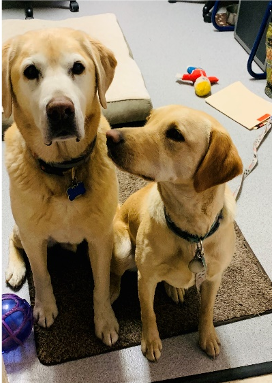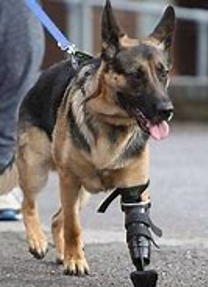
…skilled service…compassionate care
Coronavirus – How Does It Affect El Gato?
Coronavirus transmission is in the news recently and questions abound about its origin and transmission. The World Health Organization states that Coronavirus (COVID-19) infections are common in animals and humans. Some strains of COVID-19 are zoonotic, meaning they can be transmitted between animals and humans, but many strains are not zoonotic. In humans, they can cause illness ranging from the common cold to pneumonia and even death.. In December, 2019, human cases of pneumonia with unknown causes were reported in China. On January 7, 2020, a COVID-19, named 2019-nCOVID-19 acute respiratory disease, was identified as the cause. Genetic sequence data reveals that 2019-nCOVID-19 is a close relative of other COVID-19 found in Horseshoe Bat populations, but further investigations are required to confirm this.
Five Steps for Effective Hand Washing
1. Wet hands with clean, running water, turn off tap, apply soap.
2. Lather hands with soap; backs of hands, between fingers and under nails.
3. Scrub hands for at least 20 seconds. Hint: sing the “happy birthday” song from beginning to end twice.
4. Rinse hands under clean, running water.
5. Dry hands with a clean towel or air dry them.
Got a Pudgy Pet? We Can Help
According to the Association for Pet Obesity Prevention (APOP), “obesity is now a major health concern worldwide with published studies suggesting that up to 59% of dogs and cats are overweight, making obesity one of the most common medical disorders identified in veterinary practice”. While there is no universally accepted definition of obesity in dogs and cats, the APOP recommends that obesity be defined as 30% above ideal body weight.
Dog Obesity Issues
• Osteoarthritis
• Type 2 diabetes
• Respiratory and Heart disease
• Kidney disease
• High blood pressure
• Chronic inflammation
• Many forms of cancer – especially intra-abdominal cancers
• Overweight and obese dogs are expected to live shorter lives than their fitter, normal weight
Cat Obesity Issues
• Type 2 diabetes – a cat with obesity is at least three times more likely to develop diabetes than a cat of healthy weight
• Kidney disease
• Chronic inflammation
• Heart disease
• Osteoarthritis
• High blood pressure
• Many forms of cancer – especially intra-abdominal cancers
In addition to watching what your pet eats, remember to pay particular attention to the treats you provide. Hugs and snuggles have zero calories. If you do use treats, be sure they are high quality and not high calorie or high in fat.
Remember to spay or neuter your pet. Hormone changes that accompany spaying or neutering will help your pet live longer lead to decreased caloric requirements. Exercise your pet by walking your dog regularly or playing with your kitty to keep their minds stimulated. Ask us to evaluate your pet’s diet and for suggestions that will keep a spring in their step.
Kodi’s Kolumn! by Kodiak (Kodi) Bibb – Head K-9 in charge! (That’s me on the right!)

Congratulations!
 I hope you will join me in offering a big Labrador tail wag, and congratulations to my mom, oops, I mean Dr. Bibb, and my sister, Roo, seated next to me here; she’s such a ham. As you know, I am a certified California Rescue Dog Association, (CARDA), Search and Rescue (SAR) dog. That means when my mom and I are dispatched by local law enforcement, we help search for lost or missing people.
I hope you will join me in offering a big Labrador tail wag, and congratulations to my mom, oops, I mean Dr. Bibb, and my sister, Roo, seated next to me here; she’s such a ham. As you know, I am a certified California Rescue Dog Association, (CARDA), Search and Rescue (SAR) dog. That means when my mom and I are dispatched by local law enforcement, we help search for lost or missing people.
It is my great pleasure to introduce you to Roo who, with mom, just received official certification by the Institute for Canine Forensics to serve as a Historical Human Remains Detection Team. They are now eligible to be dispatched to search for and locate possible buried human remains.
Both tasks required hard work and determination, but we help solve problems. Hooray for mom and Roo!
Travel With Your Pet!
My fellow K-9 family members travel a lot with our mom and I have heard from some of you that your family loves to take you along for trips. The rules for pet health certificates have changed, however. Many states are no longer accepting the USDA VS Form 7001 as a valid Certificate of Veterinary Inspection for interstate travel of small animals. This form is easily downloadable from the internet and lacks a unique, traceable identifying number. People have fraudulently used this form. Because of this, many states are no longer accepting the 7001 form.
To help our clients, El Gato has chosen to use Certificates of Veterinary Inspections (eCVIs) provided by Global Vet Link (GVL). The good news about this form is that, once completed, it is electronically sent to the selected state and you can receive an electronic copy as well. The not so good news is that completion is much more time consuming and requires more staff time. To obtain a pet health certificate, please notify us as soon as you know you plan to travel. We can schedule an appointment for an exam and health certificate, if needed, but we can begin to prepare the necessary form. Allow us at least two business days for form completion. Please call us to discuss any questions you have regarding pet travel certificates.
For more detailed information about bringing pets into the U.S, please visit: https://www.aphis.usda.gov/aphis/pet-travel/bring-pet-into-the-united-states/pet-travel-dogs-into-us
or taking pets from the US to Mexico, https://www.aphis.usda.gov/aphis/pet-travel/by-country/pettravel-mexico
Special Days to Celebrate
Horse Protection Day, March 1, is a day to be mindful of the trials and tribulations of horses without a home, without companionship, and without love. Horse lovers will often say that these creatures are just as much our four-legged friends as are cats and dogs, and if you have ever been lucky enough to know these shy and gentle animals, you’ll know this to be true.
Thank You for your Service
National Puppy Day, March 23, This is a holiday that celebrates the offspring of “mankind’s best friends” and urges people to adopt puppies on this day. It is an unofficial holiday whose goal is to put an end to puppy mills and farms. Remember, no matter the age of your pup, give her a big hug today and every day. Thanks.

